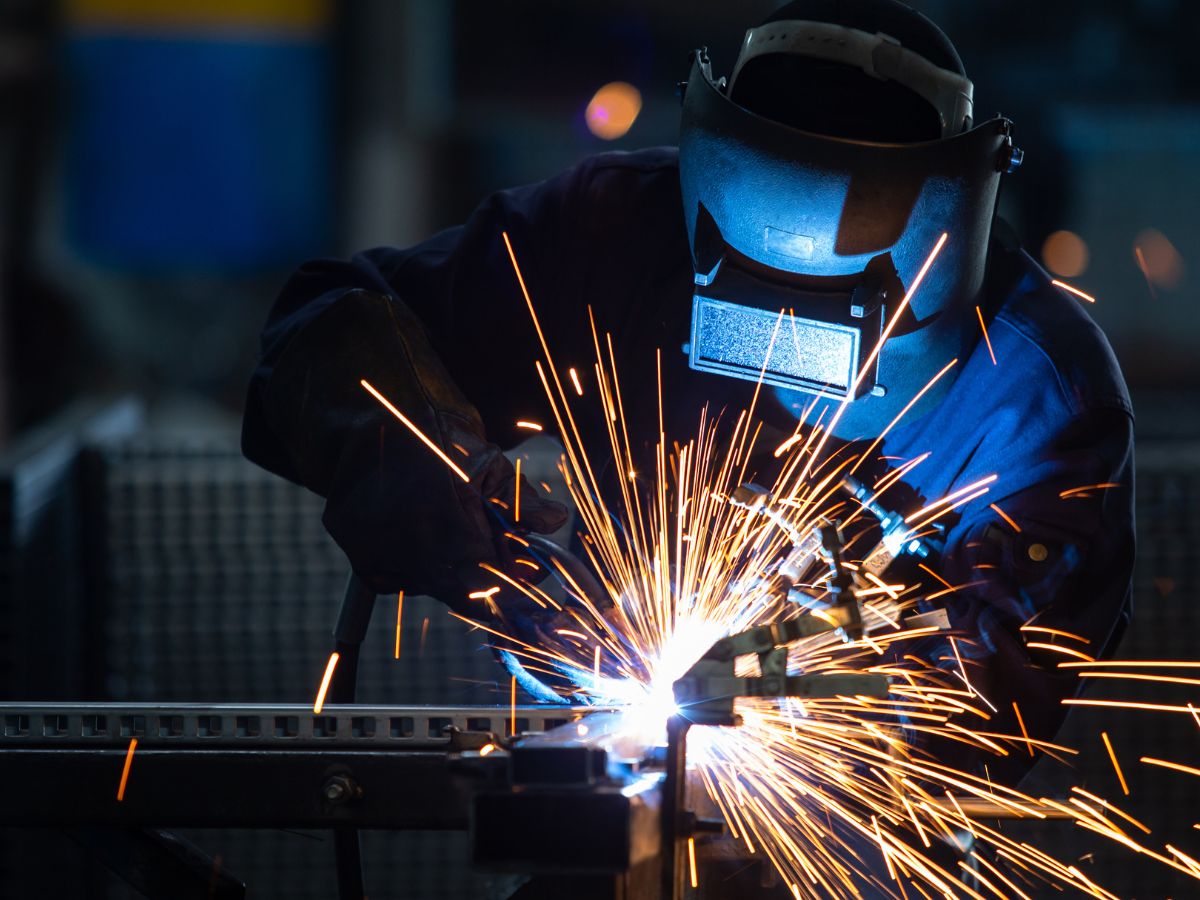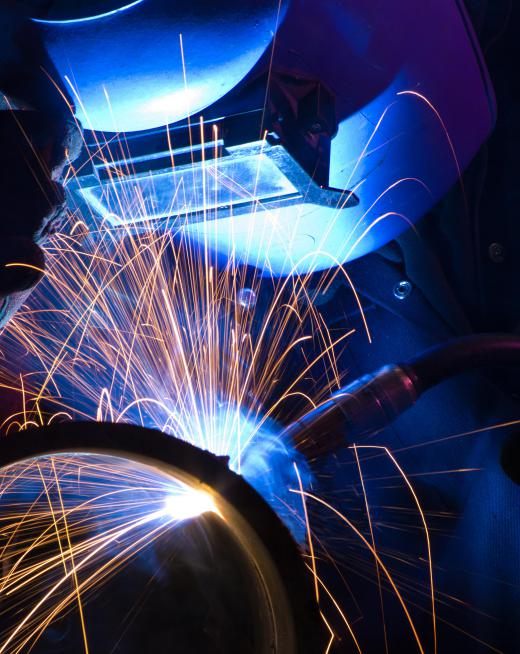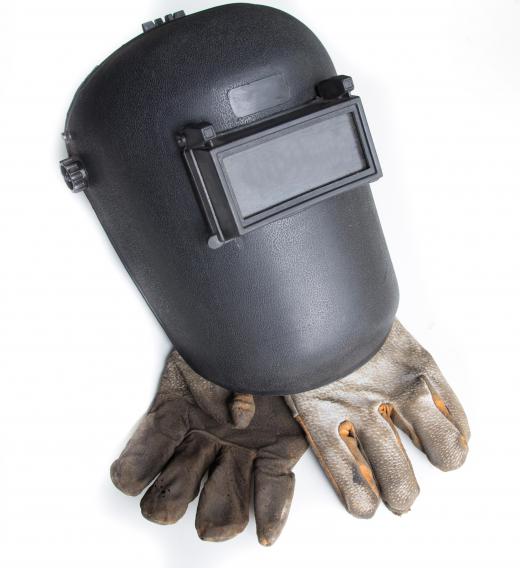Welding is the process of joining metals by melting the parts and then using a filler to form a joint. It can be done using different energy sources, from a gas flame or electric arc to a laser or ultrasound.
Until the beginnings of the 20th century, welding was done via a process known as forge welding, which consists of heating up the pieces to be fixed together and then hammering them until they amalgamate. With the advent of electricity, the process became easier and faster, and it played an important part of the industry scene during World War I and II. There are different welding processes in use in modern times:

- Arc welding is done through the use of an electrical current, and can be performed by using inexpensive equipment.
- Gas Welding is widely used for repair work, especially in anything involving pipes and tubes. It is common in the jewelry industry, as well as for connecting plastics and other materials that cannot stand higher temperatures.
- Resistance welding involves the use of additional sheets of metal to encase the pieces to be welded together. It is the most environmentally-friendly of all methods, but it requires costly equipment that cannot be used in all situations
- Energy beam welding, also known as laser beam welding, is one of the most modern techniques used. This method is fast and accurate, but the high equipment cost makes it prohibitive for many industries.

Welding cannot be done with all types of metals, as some materials, such as stainless steel, are prone to cracking and distortion when overheated. Alloys are particularly problematic, since it's hard to know the exact chemical composition of the metal. Welding has become highly automatized over the last decade, and the use of robots is now commonplace in certain industries, such as the automotive manufacturing plants.


It is possible to weld items in unusual conditions, including underwater and in outer space. Underwater welding is widely used in the repair of pipelines and ships, while that performed in space is currently being researched as a possible way to put together space stations and other structures.
